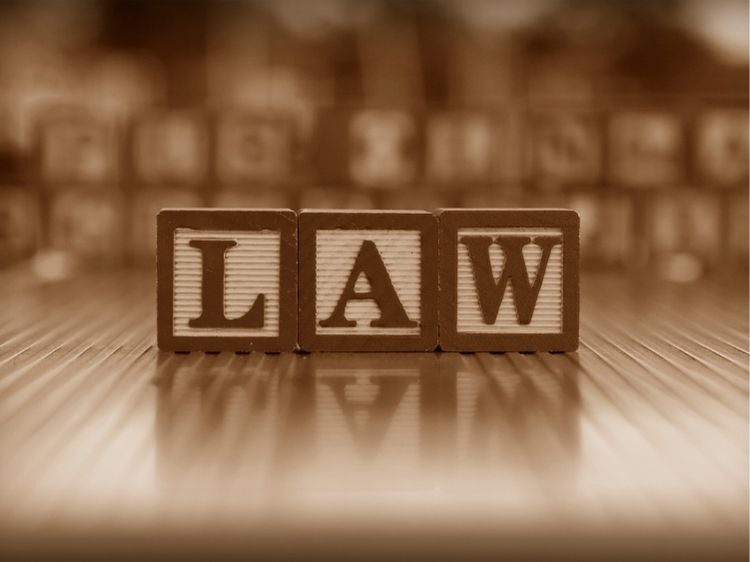If you’ve ever signed an insurance policy or taken out a new insurance product, you’ve probably come across the term third party liability. It’s a phrase thrown around a lot in the world of insurance, but what exactly does it mean? This article is designed to unravel the mystery of third-party liability, helping you understand why it matters and how it impacts your everyday life.
Insurance can feel overwhelming. Between the jargon and the fine print, it’s easy to get lost. But, when it comes to third-party liability, things don’t have to be confusing. Simply put, third-party liability is a type of insurance coverage that protects you in situations where you’re responsible for harm or damage to someone else’s property or person. It’s the foundation of many types of insurance policies, including auto, home, and business insurance. Let’s dive deeper to uncover the nuances of this important concept.
What Is Third Party Liability?
Third-party liability refers to a situation where an individual or a company is held legally responsible for injury or damage caused to another person or their property. This is commonly seen in auto insurance, but it also extends to various other types of insurance such as business liability or homeowner’s insurance.
For example, if you’re in a car accident and the other driver sues you for damages, your third-party liability coverage kicks in. It covers legal costs and any payouts if you’re found responsible. The insurance company essentially steps in to protect your finances, so you’re not left footing a massive bill.
How Does Third-Party Liability Work?
When you’re insured, your policy typically includes a specific amount allocated for third-party liability. This amount represents the maximum your insurance company will pay if you are found liable for damages or injuries caused to someone else. The important thing to remember is that this coverage only applies to third parties—that is, other people and their property. It won’t cover your own damages or injuries.
Here’s how it works:
- An Accident Happens: You are involved in an incident that causes harm to someone or their property.
- Claim Filed: The injured party files a claim with your insurance company.
- Insurance Review: The insurance company investigates the situation to determine if you’re at fault.
- Payout or Legal Action: If you’re found liable, your insurer will either pay the claim or provide legal representation to defend you.
Common Examples of Third Party Liability
Third-party liability isn’t just restricted to car accidents. It pops up in a range of real-life scenarios:
- Car Accidents: If you rear-end someone and they suffer a whiplash injury, your third-party liability coverage will help pay for their medical bills.
- Business Liability: Imagine owning a business, and a customer slips and falls on your property. They sue for damages, and your third-party liability coverage protects your business.
- Homeowner’s Liability: Say a neighbor’s kid gets hurt while playing in your backyard. If they sue you for medical expenses, your homeowner’s third-party liability insurance can cover the costs.
Why Do You Need Third-Party Liability Coverage?
Now, you might be wondering, why do I need this type of coverage? The reality is, accidents happen all the time. If you’re found responsible for an incident that causes significant damage or injury, the financial consequences can be staggering. Third-party liability insurance acts as a safety net, helping you avoid a personal financial catastrophe.
Without third-party liability coverage, you could be stuck paying for:
- Medical bills
- Property damage repairs
- Legal fees and court costs
- Compensation for pain and suffering
Whether it’s a simple fender bender or a more serious accident, this coverage ensures you’re not alone in handling the fallout.
Types of Third Party Liability Coverage
There are several forms of third-party liability insurance, and they’re often built into the policies you already have:
- Auto Insurance: This is perhaps the most common type. It covers you when you’re responsible for a car accident that injures others or damages their property.
- General Liability Insurance: Typically purchased by businesses, this coverage protects against claims of bodily injury or property damage caused by the company’s operations.
- Homeowner’s Insurance: Your homeowner’s policy will generally include third-party liability to cover accidents that happen to visitors or neighbors on your property.
- Professional Liability Insurance: For professionals like doctors, lawyers, or consultants, this coverage shields against claims of negligence or malpractice.
What Does Third Party Liability Insurance Not Cover?
While third-party liability insurance is a powerful shield, it doesn’t cover everything. It’s important to understand its limitations so you’re not caught off guard. Generally, this type of insurance does not cover:
- Your Injuries or Property: If you’re injured in an accident or your property is damaged, you’ll need to rely on other parts of your policy (like personal injury or collision coverage).
- Intentional Acts: If you cause harm to someone on purpose, don’t expect your insurance to cover it. Intentional acts of damage or harm are always excluded.
- Business-Related Activities (unless specified): If your insurance is personal, it won’t cover business-related incidents unless you have separate business liability insurance.
How Much Third-Party Liability Coverage Should You Have?
This is where things get a little tricky. The amount of coverage you need largely depends on your personal or business circumstances, but here are a few factors to consider:
- Your Assets: The more assets you own (like a home, car, savings, etc.), the more coverage you should have to protect yourself from large lawsuits.
- Your Risk Exposure: If you’re frequently in situations where accidents are more likely (e.g., driving for work, having guests over often), consider higher coverage.
- Legal Costs in Your Area: In some places, legal fees and court settlements can be astronomical. Ensuring you have enough coverage to handle these expenses is crucial.
Many insurance experts recommend a minimum of $500,000 in liability coverage for individuals, while businesses might need $1 million or more, depending on their industry.
FAQs About Third Party Liability
1. Is third-party liability insurance mandatory?
Yes, in many countries, third-party liability insurance is legally required, especially for vehicles. Driving without it can result in hefty fines or legal penalties.
2. Can third-party liability cover lawsuits?
Absolutely. Third-party liability coverage typically includes legal fees, which means your insurance will help cover the cost of defending yourself if someone sues you.
3. How much does third-party liability insurance cost?
The cost varies depending on factors like the type of insurance, the amount of coverage, and your personal or business situation. Auto liability insurance, for example, might be included in a standard auto policy, but higher limits will increase the price.
4. Does third-party liability cover damage to rental property?
This depends on your policy. In many cases, renter’s insurance or your homeowner’s insurance will provide third-party liability protection if you accidentally damage a rental property or cause harm to others while renting.
Conclusion
Third-party liability insurance is an essential layer of protection in our daily lives. From driving your car to running a business or simply owning a home, accidents can happen in the blink of an eye. And when they do, third-party liability coverage ensures that you’re not left picking up the pieces financially. With the right amount of coverage in place, you can have peace of mind knowing that if the unexpected occurs, you’re prepared.
Authoritative Links
- https://www.iii.org
- https://www.naic.org
- https://www.allstate.com
- https://www.statefarm.com
- https://www.geico.com






